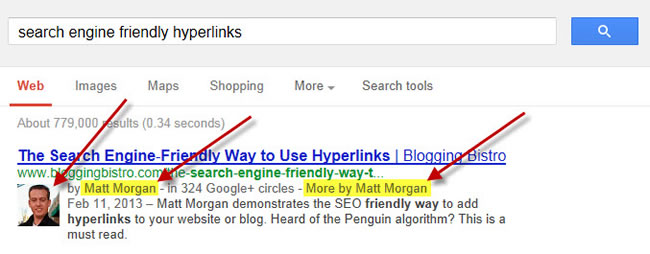Google Authorship was a very useful feature that allowed online publishers to associate (and claim) their published content with their Google+ profile. The incentive was that Google would display relevant authorship details in search results. This helped Google enhance the search experience for users.
Google Authorship displayed like this:
Many online publishers like myself lapped it up. Not only was it a heavy boost on online branding, it was also a useful web traffic magnet, as users are more likely to click on your article if there’s a face and name to it in Google search results. But now, the 3 year-old experiment has been given the axe by Google.
Yesterday, John Mueller of Google Webmaster Tools announced the company’s decision to stop displaying authorship markup in Google Search results:
“I’ve been involved since we first started testing authorship markup and displaying it in search results. We’ve gotten lots of useful feedback from all kinds of webmasters and users, and we’ve tweaked, updated, and honed recognition and displaying of authorship information. Unfortunately, we’ve also observed that this information isn’t as useful to our users as we’d hoped, and can even distract from those results. ”
From a both an author and user’s perspective, I’m not sure I agree with that last statement. I believe it was very useful, especially for adding credibility to author ranking and trust. It also served as a good incentive for creating quality content as authors could find solace in the fact that even if their content was plagiarised, the stolen work had less chance of being found by Google search.
But hey, they (Google) have the data to back this decision so who are we to disagree?
“If you’re curious — in our tests, removing authorship generally does not seem to reduce traffic to sites. Nor does it increase clicks on ads. We make these kinds of changes to improve our users’ experience”, says John Mueller.
Consequently, Google will no longer be tracking data from content using rel=author markup. The good news however is that Google remains committed to employing structured markup data to serve relevant snippets in search results.



















